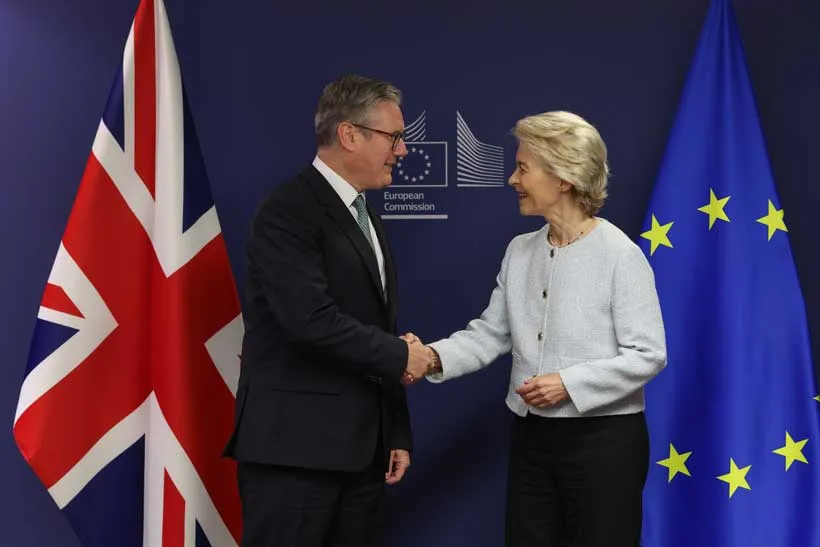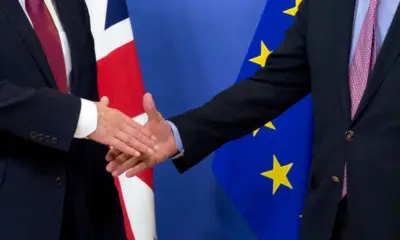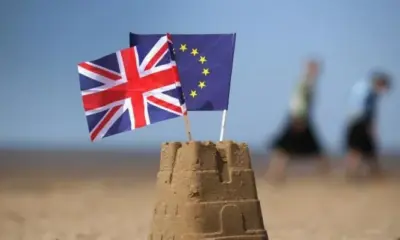Latest News
UK–EU Trade Relations in 2025: Rebuilding Bridges After Years of Friction

Five years after Brexit, trade relations between the United Kingdom and the European Union are showing cautious signs of stabilization. While political tensions remain, pragmatic cooperation on key sectors such as finance, energy, and digital trade is beginning to restore confidence. The focus in 2025 is less on separation and more on adaptation finding ways for both sides to prosper in a post-Brexit reality.
Trade Rebounds, But Challenges Remain
According to the Office for National Statistics (ONS), total UK–EU trade reached £730 billion in 2024, marking a 6% increase from the previous year. Goods exports rose particularly in pharmaceuticals, automotive components, and green technology equipment. Yet, logistics and customs delays continue to burden smaller exporters, especially those in food and manufacturing sectors.
The Windsor Framework, implemented in 2024 to streamline trade across Northern Ireland, has helped ease some frictions, creating a smoother customs process for dual-market access. However, surveys from the British Chambers of Commerce (BCC) indicate that over 40% of small firms still face higher administrative costs and delivery delays.
In response, the government is expanding digital customs platforms and launching the Smart Borders Initiative, using blockchain and AI to automate trade documentation — an area where UK fintech firms are stepping in with innovative solutions.
Energy, Finance, and Technology Cooperation
Beyond goods, the UK and EU are exploring new alignment in energy and technology. Joint investment in offshore wind farms and hydrogen infrastructure reflects mutual recognition that climate policy is an economic opportunity rather than a dividing line.
In financial services, London and Brussels have agreed to mutual regulatory dialogues, allowing limited cross-border data sharing and recognition for specific sectors such as insurance and digital payments. While full “equivalence” remains off the table, analysts at Bloomberg suggest the tone has shifted from confrontation to collaboration.
Tech trade is also gaining traction. The UK’s participation in the EU’s Horizon Europe program and its role in AI safety research demonstrate growing scientific interdependence. Industry experts believe these cooperative frameworks could lay the groundwork for a broader “Digital Trade Compact” within the decade.
Political Climate and Business Sentiment
Politically, trade has become less polarizing in Westminster. Both major parties now emphasize “constructive re-engagement” rather than ideological debates over sovereignty. Prime Minister Rishi Sunak and European Commission President Ursula von der Leyen have signaled intent to deepen ties through new agreements on services and labor mobility.
Business confidence mirrors this thaw. A 2025 PwC CEO Survey found that 64% of UK executives view Europe as their primary growth region, up from 49% in 2022. Sectors such as automotive, clean energy, and digital finance are seeing renewed investment flows.
Conclusion
The UK–EU trade relationship in 2025 is defined by gradual normalization. While friction remains in customs and regulations, both sides are moving toward pragmatic coexistence. London’s challenge now is to strengthen competitiveness through innovation, infrastructure, and partnership — turning post-Brexit adjustment into a foundation for renewed prosperity.














